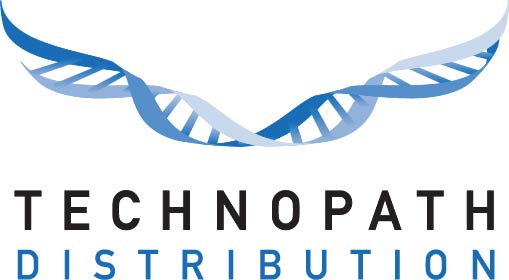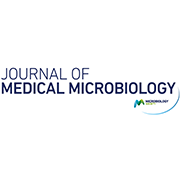The microbiome plays a crucial role in determining health and wellbeing, influencing the development of the immune system and its interactions with pathogenic microbes. Changes in the microbiome can significantly alter health status and contribute to the development of intestinal infection, with an altered microbiome being found to confer resistance to or promote infection by pathogenic bacteria.
The worldwide occurrence of antimicrobial resistance coupled with the lack of new antimicrobials, is not only jeopardising our ability to treat infectious diseases but also undermining significant breakthrough advances in health and medicine. It is known that antibiotics have a profound impact on the microbiome and can lead to the expansion of pathogenic populations.
With the emergence of antibiotic-resistance and the decreasing effectiveness of antimicrobials, the gut microbiome represents an important resource for new antimicrobials or bioactives which directly target pathogens or strengthen mucosal immune defences. Indeed, the microbiome is an important platform in which to identify effector organisms and postbiotics, including microbe-derived molecules and metabolites, as new therapeutic opportunities to treat infectious diseases.
This meeting will provide insights into the current state of research in the field, offering opportunities for collaboration and to foster new ideas.
Key topics
- Microbiome in health and disease
- Antimicrobial resistance in bacteria
- New sources of antimicrobials
- Bioactives including effector organisms, probiotics and postbiotics
Organising committee:
- Sinéad Corr (APC Microbiome Ireland and Trinity College Dublin, Ireland)
- Marta Martins (Trinity College Dublin, Ireland)
COVID-19 Mitigations
As part of the preparations for returning to delivering in-person events, Microbiology Society Council members and members of the Virus Division have worked with Society staff to develop a framework of mitigations for the Society to apply to all of its events throughout 2022, in order to ensure that these are as COVID-secure as possible.
Implementation of this framework is a shared responsibility; shared between the Society, the venues we use for our events, and all potential attendees. Attendance at any of our events is a personal choice, but it will be incumbent on all of us to deliver these mitigations in order for us to keep all delegates and staff as safe as we can.
The framework covers the following five areas.
The following mitigations will be implemented for all those attending a Focused Meeting in 2022. The Society staff will continue to consult with the organising committee in the lead up to the event and these mitigations will be kept under review and may be amended to ensure they remain appropriate as circumstances change.
Mitigation area
Vaccines
All attendees are required to be fully vaccinated with an approved vaccine against COVID-19 to attend a Focused Meeting in 2022. For many individuals, this will mean a primary course and booster vaccine, and with the booster administered at least 14 days before the meeting. However, if you do not meet this requirement or if you have any concerns around your vaccination status, please get in touch with us to discuss it further by emailing [email protected]
You can find further information on vaccines on the World Health Organization (WHO) COVID-19 vaccine advice page, which includes a list of vaccines that have been approved for use against COVID-19.
Ventilation
Best efforts will be made to promote the circulation of fresh air into each Focused Meeting venue. This will include use of air conditioning, if available at the meeting venue, or opening of doors and windows during appropriate intervals in the event programme if possible.
Masks
FFP3 masks will be provided to all individuals attending a Focused Meeting in 2022 and everyone will be expected to wear them inside the meeting venue, except when eating or drinking and except for those that have medical exemptions.
Testing
Attendees will be provided with LFT devices and are expected to test themselves daily before entering the meeting venue.
Spacing
All attendees are reminded to adhere to social distancing where possible, particularly during communal activities such as lunch and poster sessions.
Further information will be announced in the build up to the meeting on our social media channels and you can follow us on Twitter @MicrobioSoc using the hashtag #MiningMicrobiome22
Thursday 27 October, Morning
Session 1: Microbiome in health and disease
-
Chair(s): Sinéad Corr (APC Microbiome Ireland and Trinity College Dublin, Ireland)
-
Registration
-
Welcome
-
Keynote talk: Intestinal microbes train a healthy immune system
-
Offered paper: Evaluation of Ruminococcus gnavus endolysins specificity in a Simplified Human Intestinal Microbiome model
-
Offered paper: Integrative analysis of extracellular lipocalin-2 and the lung microbiome in smoking and COPD
-
Offered paper: Microbiome and medications in inflammatory bowel disease
-
Break
-
Invited talk: Microbes, Mucus and Mucins
-
Offered paper: miR-21 negatively impacts the mucus barrier, gut microbiome and subsequent inflammation
-
Offered paper: The respiratory bacteria Moraxella catarrhalis and Klebsiella pneumoniae promote pathogenicity in myelin-reactive Th17 cells
-
Lunch and poster viewing
Thursday 27 October, Afternoon
Session 2: New perspectives on tackling antimicrobial resistance
-
Chair(s): Marta Martins (Trinity College Dublin, Ireland)
-
Invited talk: Using functional genomics to identify the genetic basis for competition within microbiomes
-
Offered paper: The transcriptomic response to cannabidiol of Treponema denticola, a phytocannabinoid-resistant mucosal pathogen
-
Offered paper: Repurposing the bacterial secondary metabolite aurodox as an anti-virulence therapy for E. coli infections of the gut
-
Break
-
Invited talk: Phage-bacterial interactions in the mucosal layer
-
Offered paper: The in vitro effect of chitin on Listeria monocytogenes pathogenicity: influence on epithelial cell invasion and immune response
-
Offered paper: The UK Crop Microbiome CryoBank resource for antimicrobials and postbiotics mining
-
Flash Poster Presentations
-
Poster Session
-
Reception in the Long Room (with refreshments and canapes)
Friday 28 October, Morning
Session 3: New sources of antimicrobials
-
Chair(s): Marta Martins (Trinity College Dublin, Ireland)
-
Invited talk: Livestock microbiomes in the context of planetary health
-
Offered paper: Broadening bacteriocin boundaries – expanding the repertoire of known antimicrobial peptides
-
Offered paper: Gut microbiome derived antimicrobials for treating bovine mastitis
-
Offered paper: The gut microbiome of deep-sea fish is a potential treasure trove for antimicrobials
-
Break
Session 4: Bioactives including effector organisms, probiotics and postbiotics
-
Chair(s): Sinéad Corr (APC Microbiome Ireland and Trinity College Dublin, Ireland)
-
Invited talk: Taking advantage of bacterial warfare in the gut to promote health
-
Offered paper: Mining Cameroonian infants’ gut microbiota for beneficial bacteria with antimicrobial activity against pathogenic bacteria
-
Offered paper: Postbiotic Lactobacilli Alter Microbiota Composition in Murine Models and Human Fermented Faecal Communities
-
Offered paper: A new slow-releasing formulation of butyrate prolongs allograft survival
-
Poster Prizes and Closing Remarks
Thursday 27 October
-
Registration
-
Welcome
-
Keynote talk: Intestinal microbes train a healthy immune system
-
Offered paper: Evaluation of Ruminococcus gnavus endolysins specificity in a Simplified Human Intestinal Microbiome model
-
Offered paper: Integrative analysis of extracellular lipocalin-2 and the lung microbiome in smoking and COPD
-
Offered paper: Microbiome and medications in inflammatory bowel disease
-
Break
-
Invited talk: Microbes, Mucus and Mucins
-
Offered paper: miR-21 negatively impacts the mucus barrier, gut microbiome and subsequent inflammation
-
Offered paper: The respiratory bacteria Moraxella catarrhalis and Klebsiella pneumoniae promote pathogenicity in myelin-reactive Th17 cells
-
Lunch and poster viewing
-
Invited talk: Using functional genomics to identify the genetic basis for competition within microbiomes
-
Offered paper: The transcriptomic response to cannabidiol of Treponema denticola, a phytocannabinoid-resistant mucosal pathogen
-
Offered paper: Repurposing the bacterial secondary metabolite aurodox as an anti-virulence therapy for E. coli infections of the gut
-
Break
-
Invited talk: Phage-bacterial interactions in the mucosal layer
-
Offered paper: The in vitro effect of chitin on Listeria monocytogenes pathogenicity: influence on epithelial cell invasion and immune response
-
Offered paper: The UK Crop Microbiome CryoBank resource for antimicrobials and postbiotics mining
-
Flash Poster Presentations
-
Poster Session
-
Reception in the Long Room (with refreshments and canapes)
Friday 28 October
-
Invited talk: Livestock microbiomes in the context of planetary health
-
Offered paper: Broadening bacteriocin boundaries – expanding the repertoire of known antimicrobial peptides
-
Offered paper: Gut microbiome derived antimicrobials for treating bovine mastitis
-
Offered paper: The gut microbiome of deep-sea fish is a potential treasure trove for antimicrobials
-
Break
-
Invited talk: Taking advantage of bacterial warfare in the gut to promote health
-
Offered paper: Mining Cameroonian infants’ gut microbiota for beneficial bacteria with antimicrobial activity against pathogenic bacteria
-
Offered paper: Postbiotic Lactobacilli Alter Microbiota Composition in Murine Models and Human Fermented Faecal Communities
-
Offered paper: A new slow-releasing formulation of butyrate prolongs allograft survival
-
Poster Prizes and Closing Remarks
Registration is now closed.
Registration fees
Members get heavily subsidised registration fees for Annual Conference, Focused Meetings and other Society events – both online and in-person. Join now to enjoy these discounts for this meeting and many other opportunities that are designed for microbiologists at all stages of their careers.
Everyone who attends the meeting is asked to read and adhere to our COVID-19 mitigations framework. Please click on the dropdown at the bottom of the page to read the policies in place for the meeting.
COVID-19 mitigations
As part of the preparations for returning to delivering in-person events, Microbiology Society Council members and members of the Virus Division have worked with Society staff to develop a framework of mitigations for the Society to apply to all of its events throughout 2022, in order to ensure that these are as COVID-secure as possible.
Implementation of this framework is a shared responsibility; shared between the Society, the venues we use for our events, and all potential attendees. Attendance at any of our events is a personal choice, but it will be incumbent on all of us to deliver these mitigations in order for us to keep all delegates and staff as safe as we can.
The framework covers the following five areas:
1. Vaccines, 2. Ventilation, 3. Masks, 4. Testing, 5. Spacing, particularly during communal activities such as lunch and poster sessions.
The following mitigations will be implemented for all those attending a Focused Meeting in 2022. The Society staff will continue to consult with the organising committee in the lead up to the event and these mitigations will be kept under review and may be amended to ensure they remain appropriate as circumstances change.
| Vaccination |
All attendees are required to be fully vaccinated with an approved vaccine against COVID-19 to attend a Focused Meeting in 2022. For many individuals, this will mean a primary course and booster vaccine, and with the booster administered at least 14 days before the meeting. However, if you do not meet this requirement or if you have any concerns around your vaccination status, please get in touch with us to discuss it further by emailing [email protected] You can find further information on vaccines on the World Health Organization (WHO) COVID-19 vaccine advice page, which includes a list of vaccines that have been approved for use against COVID-19. |
| Ventilation | Best efforts will be made to promote the circulation of fresh air into each Focused Meeting venue. This will include use of air conditioning, if available at the meeting venue, or opening of doors and windows during appropriate intervals in the event programme if possible. |
| Masks | FFP3 masks will be provided to all individuals attending a Focused Meeting in 2022 and everyone will be expected to wear them inside the meeting venue, except when eating or drinking and except for those that have medical exemptions. |
| Testing | Attendees will be provided with lateral flow test devices and are expected to test themselves daily before entering the meeting venue. |
| Spacing | All attendees are reminded to adhere to social distancing where possible, particularly during communal activities such as lunch and poster sessions. |
What's included in your registration fee?
- Admission to all scientific oral and poster sessions
- Lunch on day one and break-time refreshments on both days
- Drinks reception and canapés in the world-famous Long Room
- A delegate bag and printed programme
- Certificate of participation (upon request)
Early bird discounted rates close on Monday 3 October, 23:59 BST.
| Early bird | Full price | |
| Non-member | £260 | £300 |
| Full member | £160 | £210 |
| Concessionary member | £90 | £140 |
| Student member | £90 | £140 |
Registration confirmation
Upon registration, you should receive an automated confirmation email. Please contact [email protected] if this has not been received after 24 hours.
Payment information
All registration fees must be paid in full before the start of the event. Any outstanding registration fees must be paid before any joining instructions containing information on how to access the event are sent out.
Visa applications
If you require a letter of invitation to support a visa application, we will be happy to supply this after we have received full payment.
It is the policy of the Microbiology Society not to supply an invitation letter to any delegate that has not registered to attend the meeting and paid the registration fees in full.
Requests for invitation letters should be sent to [email protected] after registration has been completed.
Please note that all meeting delegates are responsible for their own travel and visa arrangements.
Cancellations
We are aware of ongoing uncertainty around event attendance as the pandemic continues. In order to give delegates the most confidence and flexibility, we will refund all registration fees in full if you cancel your booking, for whatever reason, at any time in the lead up to the event. If you wish to cancel your booking and request a refund before the event, please email [email protected]
Abstract submissions for Microbiome and Mucosa-Associated Infectious Disease: Mining for Antimicrobials and Postbiotics with Therapeutic Potential have been extended.
Abstract submissions are now closed.
Both members and non-members of the Microbiology Society are welcome to submit an abstract for the meeting. All offered oral and poster presentations will be selected from the abstracts submitted. Once submissions are closed, they will be reviewed by the organising committee, and submitters will be notified of the outcome by email.
By submitting an abstract to this meeting, you are indicating to the session organisers your commitment to attend the event in-person.
Abstract guidance
Abstracts must be a maximum of 250 words. The Society has produced a guide to give delegates some tips on how to write a great abstract, which can be downloaded below:
Please note that the abstract is the only information session organisers use when deciding whether to accept your work for presentation as an offered oral or poster. If accepted, it will also be published in the abstract book for the meeting, so think carefully about what needs to be included.
Journal of Medical Microbiology Outstanding Science Prize
The Journal of Medical Microbiology is pleased to provide the ‘Outstanding Science Prize’ for a scientific poster at the Gut Microbiome and Mucosa-Associated Infectious Disease: Mining for Antimicrobials and Postbiotics with Therapeutic Potential meeting. The winner, selected by members of the organising committee, will win a cash prize and be featured on the Microbe Post. All posters displayed at this meeting are automatically entered for the prize.
Society Conference Grants will be available to support eligible members wishing to attend this Focused Meeting. Applications are now open and will close on 23 September 2022. Further information is available on the Society Conference Grants page. We are aware of ongoing uncertainty around event attendance as the pandemic continues. To find out more about our grant refund policies, please visit our Grant Rules page.
Venue
This meeting will take place at the Arts Building of Trinity College Dublin in Ireland.
Please enter the grounds using the Front Gate via College Green on the west side of campus. Alternatively, the Arts Building can be accessed directly from the entrance on Nassau Street.
Transport
The nearest rail station is Dublin Pearse, a 15–20 minute walk from the venue. Trinity College is served by multiple bus routes and the Trinity stop on the Green Line of the tram network. You can plan your journey using the Transport for Ireland website.
Parking
This meeting is in central Dublin and there is no allocated parking. We strongly encourage delegates to arrive by public transport or on foot. The nearest car parks are Q-Park Setanta and APCOA Trinity Street, please check the websites for rates.
Accessibility
The conference takes place in the Thomas Davis Lecture Theatre of the Arts building, which is wheelchair accessible.
A hearing loop is available in the lecture theatre.
Please contact [email protected] if you have any other accessibility questions.
Accommodation
Please note that accommodation is not included in the registration fee for this meeting.
Sustainability
Carbon footprint offsetting
Delegate travel is the biggest contributor to the carbon emissions involved with Focused Meetings, we would therefore like to encourage all delegates to offset their carbon footprint.
A carbon offset is a way to compensate for your emissions by funding an equivalent carbon dioxide saving elsewhere.
You can calculate and offset your carbon footprint from travelling to the meeting by using this carbon calculator, this supports international projects and sustainable development worldwide.
Please contact [email protected] to enquire about exhibition and sponsorship opportunities.
Below you will find more information about our invited speakers, who will present their work and research at Microbiome and Mucosa-Associated Infectious Disease: Mining for Antimicrobials and Postbiotics with Therapeutic Potential.
- Colin Hill (APC Microbiome Ireland and University College Cork, Ireland)
- Marguerite Clyne (University College Dublin, Ireland)
- Mark Webber (Quadram Institute, UK)
- Martha Clokie (University of Leicester, UK)
- Ramnik Xavier (BROAD Institute of MIT and Harvard, USA)
- Sharon Huws (Queens University Belfast, UK)

Ramnik Xavier
Ramnik Xavier is a core institute member of the Broad Institute of MIT and Harvard, where he serves as director of the Klarman Cell Observatory. He is also director of the Broad’s Immunology Program and co-director of the Broad’s Infectious Disease and Microbiome Program. He is the Kurt J. Isselbacher Professor of Medicine at Harvard Medical School; director of the Center for Computational and Integrative Biology and professor in the Department of Molecular Biology at Massachusetts General Hospital (MGH); and co-director of the Center for Microbiome Informatics and Therapeutics at MIT.
His laboratory focuses on systematic characterization of genetic variants to understand the regulation of barrier defense, innate and adaptive immunity; chemical biology to control cellular disease phenotypes suggested by human genetics; molecular mechanisms to determine roles of the microbiome in health and disease; and development of computational approaches to uncover patterns of human and microbial pathway regulation during disease and treatment.
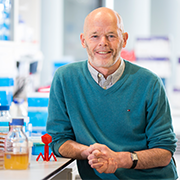
Colin Hill
Colin Hill has a PhD in molecular microbiology and is a Professor in the School of Microbiology at University College Cork, Ireland. He is also a founding Principal Investigator at APC Microbiome Ireland, a large research centre devoted to the study of the role of the gut microbiota in health and disease. He is particularly interested in the effects of probiotics, bacteriocins, postbiotics and bacteriophage on health and disease. He has published more than 600 papers and holds 25 patents. He was president of the International Scientific Association for Probiotics and Prebiotics from 2012–2015. More than 80 PhD students have been trained in his laboratory.
Twitter: @colinhillucc
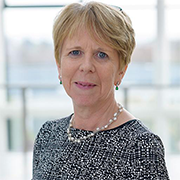
Marguerite Clyne
Marguerite Clyne is Associate Professor in the School of Medicine in University College Dublin and a fellow at the Conway Institute of Biomolecular and Biomedical Science UCD. She has a PhD in Microbiology from Trinity College Dublin. Her research interest is host-pathogen interactions especially those that occur at mucosal surfaces. Organisms that she has worked with include the bacteria Helicobacter pylori, Campylobacter jejuni, Pseudomonas aeruginosa and the enteric parasite Cryptosporidium. A particular focus of her work has been the interaction of bacteria with mucus and mucins and how these interactions can modulate host tropism and pathogenesis.
Twitter: @MargueriteClyne

Mark Webber
Professor Mark Webber runs a research group at the Quadram Institute which studies the molecular mechanisms of bacterial adaptation to stress. The group uses a variety of functional genomics, laboratory evolution, genome sequencing and molecular microbiology to study bacterial survival and resistance mechanisms in conditions relevant to infection, the hospital environment and the food chain. Before joining the Quadram Institute, Webber led a research group at the University of Birmingham, which he established during a BBSRC David Phillips fellowship studying the evolution of biocide-antibiotic cross resistance. Webber has published over 100 articles relating to antimicrobials, biofilms and microbial stress resistance.
Twitter: @ma_webber
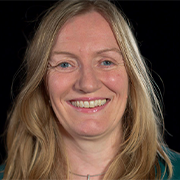
Martha Clokie
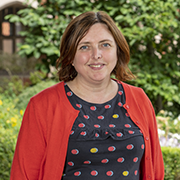
Sharon Huws
Prof Huws’s research is focused on understanding microbiomes, especially in the context of understanding the role that livestock gastrointestinal tract microbiomes play in food security, environmental impact and spread of antimicrobial resistance. She is also interested in understanding the evolutionary drivers of antimicrobial resistance and exploiting microbiomes for industrial biotechnology purposes, with a focus on novel antimicrobial discovery. She has over 20 years of experience working on livestock gastrointestinal microbiomes with over 100 publications and a H index: 31 and over 3,000 citations (Google scholar). She has also supervised over 10 PhD students successfully and currently supervises seven as main supervisor and five as second supervisor. Prof Huws has also secured over £3M of funding in the past five years mainly to understand and reduce methane emissions from ruminants and AMR spread from livestock to the environment, with the aim of developing innovative solutions to these global challenges. Examples of projects which are ongoing include FACCE ERA-Net gas projects RumenPredict and Seasolutions and EU Horizon 2020 projects MASTER and Holoruminant.
Prof Huws also chairs the Rumen Microbial Genomics network which underpins the activities of the Livestock Research Group (LRG) within the Global Research Alliance (GRA) for mitigation of climate change. The LRG has many stakeholders, including the World Health Organisation and the Food and Agriculture Organisation for the United Nations, alongside having members from 51 countries and the GRA themselves also act as observers for the Intergovernmental Panel on Climate Change. Prof Huws also has many international formal collaborations with colleagues in the USA, Canada, Brazil, China and the EU.



